275 MacLaren Street, Ottawa, ON K2P 0L9
Research Start-up Summary and Abstract:
Questions about disclosing HIV-positive status to a sexual partner raise complicated issues pertaining to sex, consent, relationships, privacy, well-being, and the role of the state in relation to these issues. In Canada, criminal law is used as a formal state response to questions about HIV non-disclosure, though there are other ways that non-disclosure is regulated and criminalized (e.g., interactions with people in social services). In Canada, non-disclosure has been regulated through interpretations of existing criminal laws.
This research addresses an urgent issue that urban Indigenous communities are facing. ANHN promotes Indigenous-centred and culturally-informed approaches to the problem of HIV/AIDS in Indigenous communities. A focus on the specific impacts of laws about non-disclosure is intended to add to and complement the important work being done, so as to support Indigenous people living with HIV/AIDS, and to address the epidemic of this disease in Indigenous communities.
Considering the transmission of HIV to a sexual partner without their knowledge is certainly an important matter because of the possible impacts on the individual and the transmission more generally of HIV. Yet non-disclosure is not a straightforward issue. People living with HIV/AIDS can experience stigma and discrimination, making it difficult to disclose one’s HIV status. As noted by the Canadian HIV/AIDS Legal Network (2016), “HIV-related stigma and discrimination intersect with other forms of stigma and discrimination such as those based on sexual orientation, race, immigration status, poverty, drug use and/or sex work” (p.6). The intersection of HIV stigma and other forms of discrimination create situations where marginalized people with HIV are especially vulnerable in relation to disclosure, and can become more regulated than others. Such is the situation for Indigenous people living with HIV/AIDS.
Key Questions:
This research is a case study focused on one urban centre in Saskatchewan – Regina. The primary research questions include:
1) What are the impacts of criminal laws about HIV non-disclosure on Indigenous people living with HIV or AIDS in Regina?
2) What do people living with HIV, and community organizations working with them need and recommend regarding these laws?
These questions are purposefully broad so as to survey the key issues at stake. Sub-questions include: How are these impacts and needs gendered? Do they differ for the Indigenous 2LGBTQ community? What do Indigenous people living with HIV or AIDS in Regina know about criminal laws concerning disclosure of HIV status to sexual partners? What do people want in terms of legal resources, changes, or policy responses?
Engagement objectives:
This research aims to identify and understand the leading impacts that laws about HIV non-disclosure are having on Indigenous people in the urban centre of Regina,the implications of these laws for HIV/AIDS community organizations providing services to Indigenous people in this urban centre, the needs and recommendations from Indigenous people living with HIV/AIDS and from HIV/AIDS organizations working with Indigenous people, policy and legal responses that centre Indigenous knowledge and perspectives in relation to an urban context and a base of relevant information from which future research directions can be created.
The overall goal with this project is to create research where the priorities of Indigenous people living with HIV/AIDS are listened to and respected – they are the experts of their experiences and needs. This project also recognizes and respects the expertise of ANHN and aims to create a project that is meaningfully based on that expertise and their goals. The purpose of this research is that it be collaboratively created (in a way that respects the time and obligations of the community partner and participants) so as to be mutually beneficial. This research is focused on meaningful change for community members and
aims to give back through research informed by Indigenous knowledge. In addition to drawing on Indigenous research methodologies and following appropriate Indigenous protocols in this work, the intention with the policy recommendations is to articulate those in ways that work for Indigenous people and work to challenge settler-colonial impositions of policies and laws on Indigenous peoples. Indigenous sovereignty and self-determination are the starting points for this research, and that includes self-determination related to the body, sexuality, and law.
Methodology:
A qualitative research approach informed by Indigenous methodologies is most appropriate for this project. Semi-structured interviews will be done with Indigenous people living with HIV or AIDS, and with key informants (who might also be HIV positive) working and volunteering for relevant HIV/AIDS urban community organizations. Interviews with people living with HIV or AIDS will initially be sought through ANHN’s connections with the community, though might expand through snowball sampling/word of mouth (e.g., through ANHN’s SK Indigenous HIV Conference).
Collaborating urban Aboriginal organization:
All Nations Hope Network (ANHN)
Main contact and Principal Investigators:
Dr. Emily Snyder, Assistant Professor
Department of Indigenous Studies
Women’s & Gender Studies Program
University of Saskatchewan
[email protected]